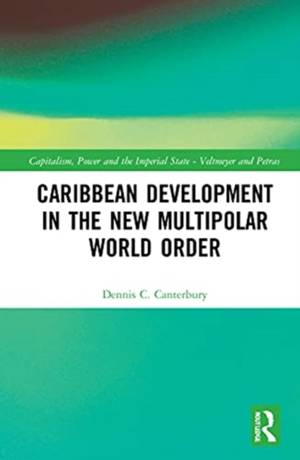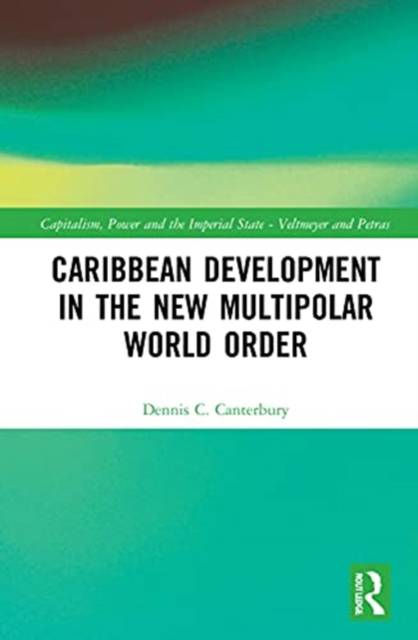
- Retrait gratuit dans votre magasin Club
- 7.000.000 titres dans notre catalogue
- Payer en toute sécurité
- Toujours un magasin près de chez vous
- Retrait gratuit dans votre magasin Club
- 7.000.0000 titres dans notre catalogue
- Payer en toute sécurité
- Toujours un magasin près de chez vous
Caribbean Development in the New Multipolar World Order
Dennis C CanterburyDescription
This book addresses the subject of critical development alternatives for the Caribbean Community (CARICOM) states in a post-neoliberal, new multipolar world order based on competition and co-operation by the United States, the European Union, China, and Russia for natural resources and markets. Neoliberal globalization has traditionally restricted economic and political activities in the Caribbean region to Western-style free-market capitalism and liberal democracy. However, through an exploration of the new multipolar world order, which replaces the US-led unipolar global order that existed since the collapse of the former Soviet Union, the author argues that today, the Caribbean Community states now have real economic and political options for development alternatives. Through examining how countries such as China and Russia have risen to economic success in recent years, the book seeks to explore how the Caribbean Community states might adopt such features which would allow them to formulate "another" development, such as introducing measures which can bring about a reconciliation between resource use and endowment, and reduce inequalities. As such, it will appeal to scholars of sociology and development studies with interests in the Caribbean region and world order.
Spécifications
Parties prenantes
- Auteur(s) :
- Editeur:
Contenu
- Nombre de pages :
- 216
- Langue:
- Anglais
- Collection :
Caractéristiques
- EAN:
- 9780367552039
- Date de parution :
- 27-08-21
- Format:
- Livre relié
- Format numérique:
- Genaaid
- Dimensions :
- 156 mm x 234 mm
- Poids :
- 489 g

Les avis
Nous publions uniquement les avis qui respectent les conditions requises. Consultez nos conditions pour les avis.






